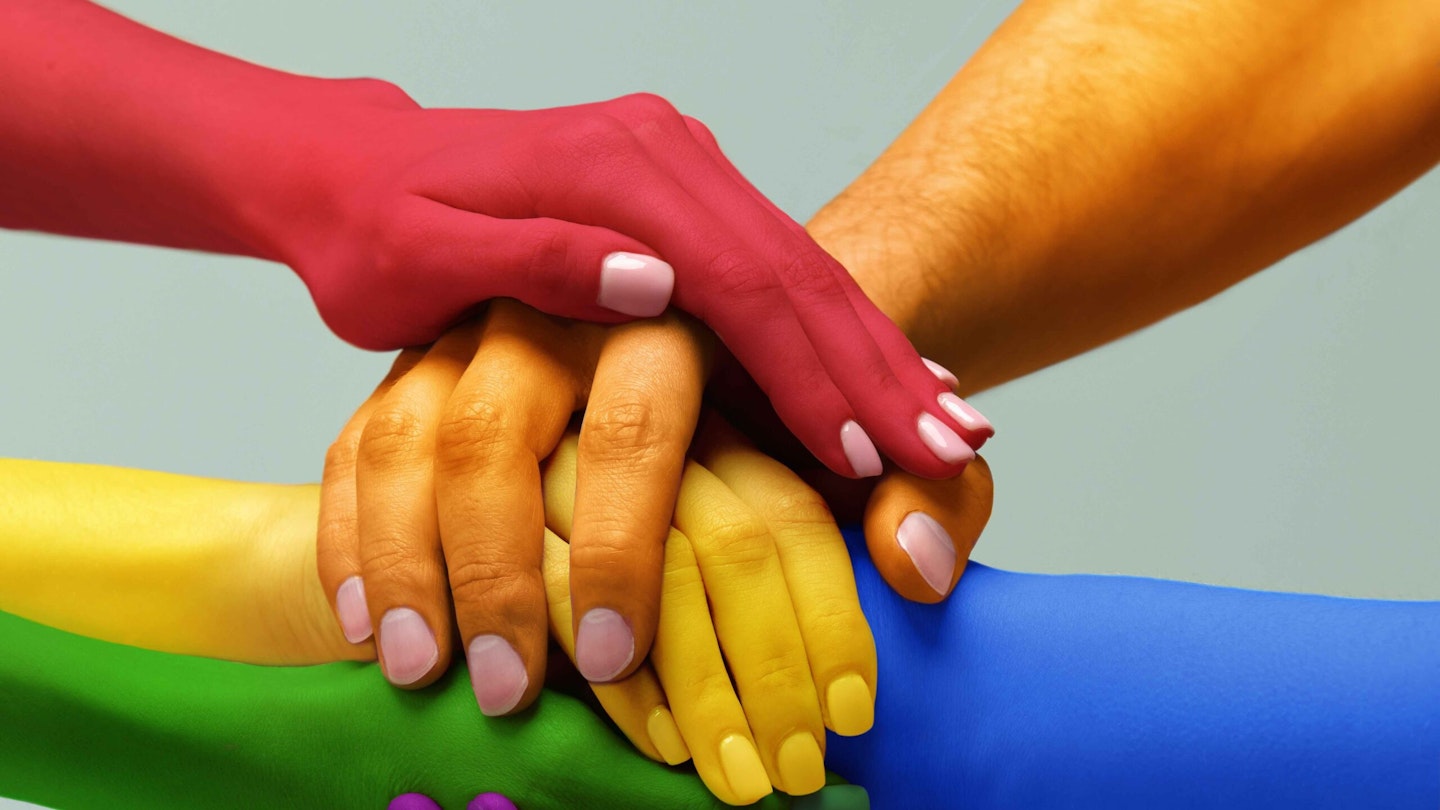Yours writer Lizzy Dening speaks to experts to discover the best ways to be there for your gay or trans grandchildren
We all want to be there for our grandchildren, but with a different generation it can feel like a bit of a minefield knowing how to help – particularly as they navigate uncharted waters in terms of gender or sexual identity. But while you might not realise it, support from a grandparent can be crucial in helping them to find their feet. “In terms of growth and development, grandparents can play an important role,” says Lukasz Konieczka, Executive Director of Mosaic Trust, an LGBT+ young persons’ trust based in London. “Grandparents can offer stability and unconditional love.” If you want to help your LGBT+ grandchild but aren’t quite sure where to start, here are some of Lukasz’s top tips.

Don’t worry too much about mistakes
In a fast-paced world where language is constantly evolving, it can feel scary to take a step into the unknown: what if you make a mistake and accidentally cause offence? The good news is that, for the most part, a willingness to learn (coupled with unlimited love) goes a long way. And in some ways a lack of knowledge can be a benefit. “You might feel out of date, but actually not knowing, and realising and accepting there are things you don’t understand might create more leeway and breathing room,” points out Lukasz. “Give yourself permission and space not to know everything. You’re not an expert – so admit it. That way you can ask questions and have conversations. It gives them the chance to be an expert in their own life.”
It's easier being a grandparent than a parent
You might feel that big discussions about gender and sexuality are better placed at home but, in fact, being one step removed from their immediate upbringing can make things simpler. “You aren’t as emotionally entangled as you’re not at home, and you can get away with more mistakes than their parents as you’ll be given the benefit of the doubt more often,” says Lukasz. “Children and teens are often accepting that grandparents might take longer to understand. Plus you can perhaps bridge those conversations between the child and their parents.”

Earn their trust
While you will be forgiven certain errors, a big one to avoid is breaking their trust. “Let them know if you’re going to tell their parents anything from your conversations. There needs to be a clear understanding – for example, if there are some safeguarding concerns that you might have to raise with them,” advises Lukasz. “Other details, like if they have a crush on someone, etc, can be kept away from their parents. It can further isolate them if they find out you’ve gone behind their back.”
What not to do
As well as protecting their trust, learning to listen is crucial. “When older people say things like, ‘back in my day, we never had X’, it's not helpful,” says Lukasz. “We have had gay and trans people for centuries. They are on their own journey and it doesn’t build rapport.” That said, he does recommend sharing stories that help forge a connection – perhaps there has been another person in your life who went through a similar experience (even if at the time it was more of an open secret) who you could talk about.

Which terms should you use
It’s easy to get caught up in worrying about language – so much so that we hold our tongues entirely! But Lukasz has an easy rule for not getting too worked up: “Try to use the language they are using themselves. It might take time to start feeling natural, but making the effort is appreciated.”
Mistakes will happen. It might be, for example, that your grandchild now identifies as a different gender, but you accidentally call them ‘he’ instead of their preferred ‘she’ pronoun. “Humour is the best way – you can say you’ve had a ‘senior moment’, or whatever. In general though you don’t need to exaggerate a mistake, just correct yourself and move on,” says Lukasz. “Use their preferred name and pronoun even when they aren’t there, as otherwise they might overhear you and it can burn a relationship. It’s respectful.”
Learn to adjust
It may feel challenging to have to let go of ideas you’ve held for years about your grandchild’s gender, or what their future might look like, but remember that inside they are still the same person you’ve always loved – and they need your support more than ever. “It can be discombobulating for adults, but our role is to give them the opportunity to explore who they are. If they are changing their name or their pronoun, just adjust,” says Lukasz. Ultimately, if you push against their feelings, you may end up slowing down their progress (not to mention alienating them). “Don’t be another person they have to fight. If you’re not part of their journey they will spend effort fighting you, rather than looking for their internal truth,” says Lukasz. “They need an oasis of calm when everything else is in flux.”
Find out more
If you want to know more about LBGT+ issues, most libraries have a section dedicated to the topic. But equally, research is not essential to be a great supporter, according to Lukasz: “It’s not about doing a PhD in gender identity, it’s about connection, empathy and belonging. Saying: ‘we love you for who you are, and we want you to be happy.’”
Lizzy Dening is an award-winning journalist and has spent many years working for Yours magazine both in-house and as a freelance writer and editor. Her specialisms include health and fitness, interviews (both real life and celebrity) and women’s issues. She’s also written for publications including Grazia, Vogue and the Guardian.
